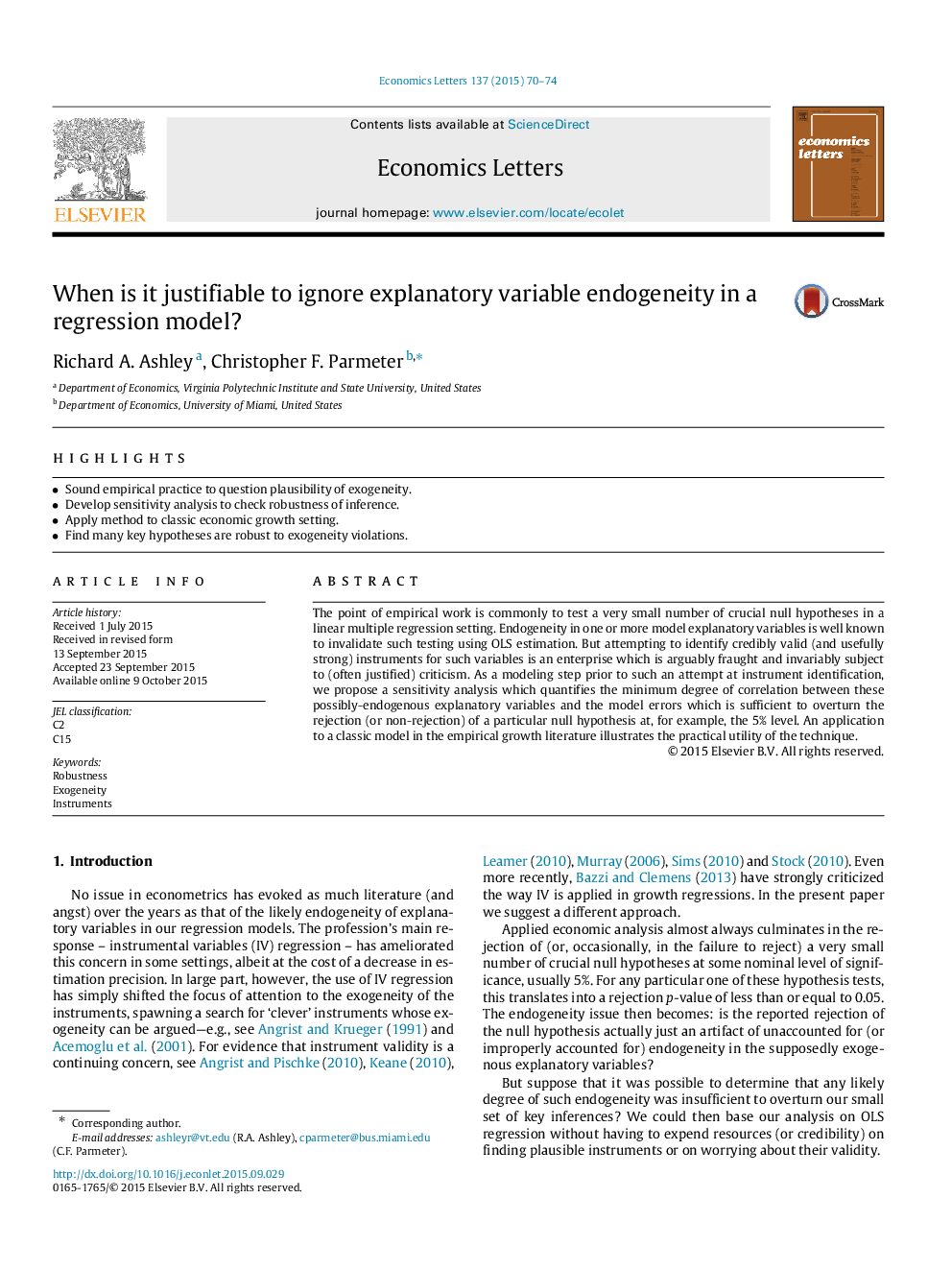| Article ID | Journal | Published Year | Pages | File Type |
|---|---|---|---|---|
| 5058659 | Economics Letters | 2015 | 5 Pages |
â¢Sound empirical practice to question plausibility of exogeneity.â¢Develop sensitivity analysis to check robustness of inference.â¢Apply method to classic economic growth setting.â¢Find many key hypotheses are robust to exogeneity violations.
The point of empirical work is commonly to test a very small number of crucial null hypotheses in a linear multiple regression setting. Endogeneity in one or more model explanatory variables is well known to invalidate such testing using OLS estimation. But attempting to identify credibly valid (and usefully strong) instruments for such variables is an enterprise which is arguably fraught and invariably subject to (often justified) criticism. As a modeling step prior to such an attempt at instrument identification, we propose a sensitivity analysis which quantifies the minimum degree of correlation between these possibly-endogenous explanatory variables and the model errors which is sufficient to overturn the rejection (or non-rejection) of a particular null hypothesis at, for example, the 5% level. An application to a classic model in the empirical growth literature illustrates the practical utility of the technique.
